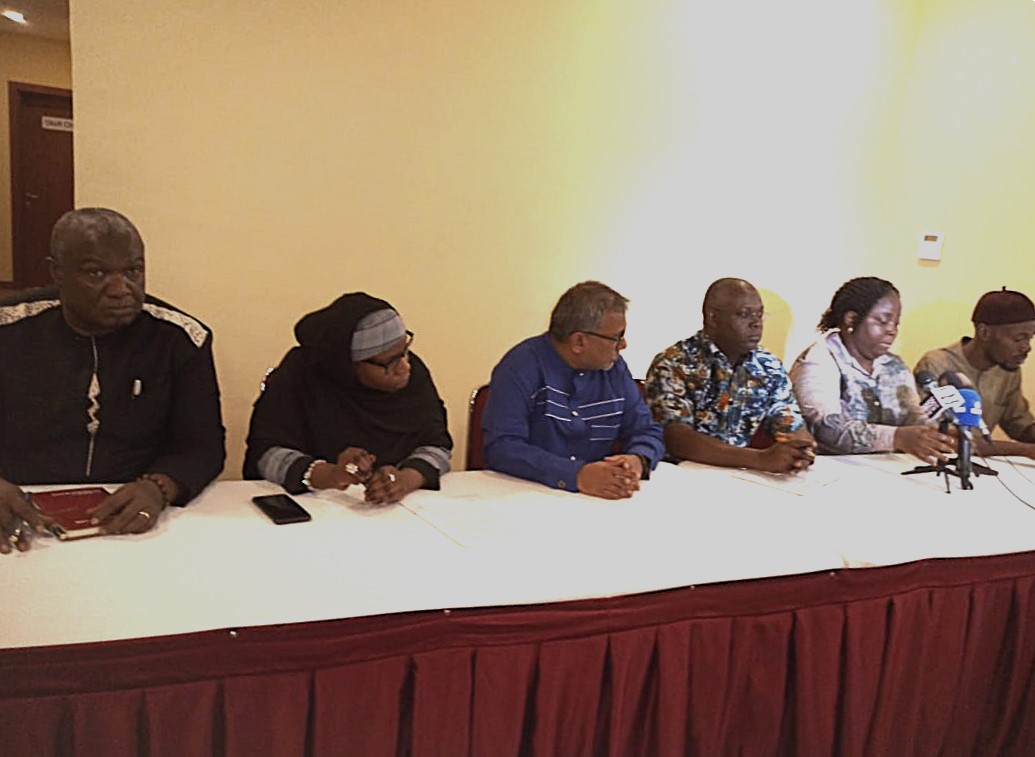By Sumaila Ogbaje
Search for Common Ground (SFCG) simply known as ‘Search’, a global peacebuilding organisation, says it has developed an approach for increased involvement of youths in peace building initiatives in Nigeria.
The Acting Country Director, SFCG, Ouattara Karno, disclosed this on Wednesday in Abuja, while briefing newsmen on the activities of the organisation.
Karno said that the United Nations Security Council in 2015 unanimously adopted the historic resolution 2250 on Youth, Peace and Security (YPS) giving birth to the UNSCR 2250.
This, according to him, affirmed young people’s important role in the prevention and resolution of conflicts, and stresses the importance of engaging youth as partners and leaders in peace building.
He said that the Youth 360 model of the search was an adaptable model that sought to put power in the hands of youths, support their initiatives and build trust, social coalition and cohesion.
He said that the model was developed to transform the perception of youths as victims, perpetrators of conflict or beneficiaries of action, which had often led to underfunding of youth-led peace building action.
According to him, it is developed to challenge a traditional approach of excluding youths from taking leadership roles in actions that contribute to peace and stability.
”This model is, therefore designed to tap into opportunities for youth-led actions contributing to peace and security.”
Karno also said that the organisation had been working on the frontlines of conflicts, where millions of lives were at stake across 33 countries, using its core methodology called the Common Ground Approach (CGA).
”The methodology is best described by their tagline; trust, collaboration, breakthroughs. They help adversaries learn to trust each other, create avenues for collaboration, and generate breakthroughs for peace,” he explained.
He added that Search had been working in Nigeria since 2004 and had developed a robust toolbox of locally adapted approaches to preventing violence and building collaboration across dividing lines.
”Some of our flagship approaches in Nigeria include community-based peace architecture, early warning and response mechanisms, behavioral change, media and strategic communications, digital listening and response, and conflict analysis and research.
”In Nigeria, Search has implemented many projects targeting youths through trainings, transformative dialogues, mentorships, fellowships, skill acquisition and support for youth led initiatives,’’ he said.
The country director further said that the organisation was implementing the Nigerian Youth Collaborative Action for Religious Engagement project (Youth CARE) which had brought together 22 young religious activists in Bauchi.
He said the activists represented diverse faith-based and non-faith-based youth-led organisations to form the Bauchi Youth Religious Advocacy Network (BYRAN).
”Since its establishment, the BYRAN has undergone trainings on the Common Ground Approach, the conflict sensitivity and Do No Harm principles, the Youth 360 approach, Digital Peacebuilding, among others.
”Lessons from these trainings have been deployed to promote freedom of religion and belief (FoRB) in Bauchi state and across Nigeria, through different platforms including traditional and new media.
”In the first quarter of 2025, the Youth CARE project organised monthly meetings for the BYRAN, where collective and individual initiatives promoting FoRB in Nigeria were discussed and planned.
”Some of these initiatives have been implemented in Bauchi state, especially the intra-religious initiatives, Sport for FoRB and Walk for FoRB, aimed at amplifying awareness on the importance of Freedom of Religion and Belief in Nigeria.
”The Youth CARE project also organised Peer Learning Exchanges with participation from Bauchi and Plateau states Youths advocates.
”The Peer Learning Exchange Programme has bridged religious divides ensuring participants are engaged in activities designed to foster mutual understanding and respect among different religious groups,’’ he said.
Mr Saji Prelis, Director, Children and Youth, SFCG and Co.Chair, Global Coalition on Youth, Peace and Security, noted that governments saw young people from a place of panic, threat and burden.
He said they were determined to change the narrative of how young people were perceived and engaged.
According to him, this is away from seeing them as a threat to seeing them as partners in peace and security efforts.
Similarly, the Director of Programme, SFCG, Gift Omoniwa, said that the organisation had implemented dialogues between youth leaders and community leaders to address age-long issues on breakdown of trust and promote collaboration.
Omoniwa said that Search was currently in the process of procuring livelihood support, targeting more than 500 young persons across 66 communities and 33 local government areas in Rivers, Bayelsa, and Delta.
”Also, we are supporting the young persons to be champions of peace in the digital space, where we have provided trainings on digital literacy.
”We now have young persons who are identifying issues that are driving conflict within the digital space and also promoting actions that are addressing them,’’ she said. (NAN)

